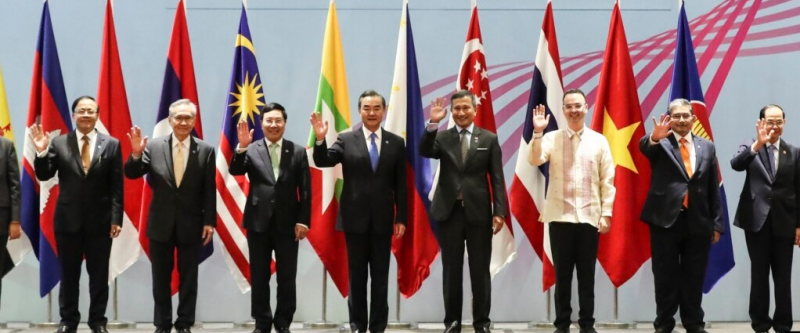
BEIJING: In an effort to bolster the stability of Beijing's manufacturing supply chains amid growing rivalry with the United States, China is expected to initiate discussions with Southeast Asian countries about expanding its vast free trade zone.
Officials in Beijing have told state-run media that they will hold talks with ASEAN leaders this week, in a bid to accelerate talks referred to as the ASEAN-China Free Trade Area "Version 3.0". This week, Chinese Premier Li Keqiang is in Phnom Penh for a series of summit meetings with ten members of the bloc.
Installation of version 3.0, according to the Ministry of External Affairs, is "slated to begin" in September. To maintain open markets and supply chains in a region of the world that China considers necessary, it seeks to expand the trade area.
Also Read: Palestine: Israeli forces killed teen in west bank raid
According to Jayant Menon, visiting senior fellow at the Regional Economic Studies Program at the ISEAS-Yusuf Ishaq Institute in Singapore, every trade announcement is now more closely linked to geopolitics rather than direct flows.
ASEAN, which has a total population of 685 million, is made up of Singapore, Brunei, Cambodia, Indonesia, Laos, Malaysia, Myanmar, the Philippines, Thailand and Vietnam.
It is also a growing center for the manufacture of goods that are sometimes shipped to China for final assembly and re-export. The ministry reported in September that the value of trade between China and ASEAN is US$878.2 billion.
As the US government exerts economic pressure on China through tariffs and sanctions on its high-tech industry, while keeping China out of its own trade agreements, China seeks to strengthen its trade ties with ASEAN.
In May, Washington established the 14-nation Indo-Pacific Economic Framework (IPEF) to promote "fair" trade, "resilient" supply chains, and infrastructure upgrades, including clean energy. China is not a partner.
Itinen Pongsudhirak, a professor of political science at Bangkok's Chulalongkorn University, said: "Ejecting is one thing, stopping it is another. It serves to prevent IPEF from encroaching on China's economic sectors."
Western sanctions against Russia over the conflict in Ukraine have dealt a further blow to global supply chains.
Daniel K. in Hawaii. "China will have to think very hard about how to overcome decoupling," said Professor Alexander Wuwing from the Inoue Asia-Pacific Center for Security Studies.
Also Read: Iran executes two men found guilty of killing police in 2016
"After Ukraine and after the trade war with the United States." In the 12-year-old ASEAN-China Free Trade Area, tariffs on 90% of shipped goods have been reduced.
According to a joint statement by both sides, the ASEAN-China summit in October last year resulted in a joint feasibility study on making the trade sector more "comprehensive" and "responsive to contemporary global challenges". The most recent upgrade was done in 2019.
According to last year's ASEAN-China statement, future amendments should improve "digital platforms" for tourism and address-of-origin regulations.
According to the state-run China Daily, trade sector reform was the "topic" of a trade exhibition held in the Chinese city of Nanning in September.
According to Wuwing, Southeast Asian countries would welcome an upgrade as they rely on selling manufactured goods to China and many of them see the world's No. 2 economy as a source of growth.
Trade between China and several Southeast Asian countries grew by double-digit percentages in the first nine months of the year, according to Chinese customs data. For example, exports grew by 30% to Malaysia and 41% to Singapore.
A Chinese-funded railway line through Laos that has been running for a year has transported US$1.7 billion worth of cargo through the impoverished nation, according to state-run Xinhua News Agency on Wednesday.
This is one of those FTAs that really bites to use the phrase," Menon said.
Also Read: Tokyo hosts the sixth "Saudi-Japan Vision 2030" Ministerial Meeting
He added that an upgrade would "have a real impact" and that "from the Chinese side, it's about saying 'remember we're still here and we're actively engaged with you.